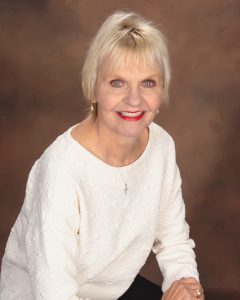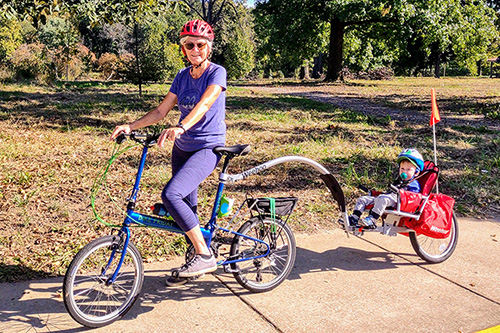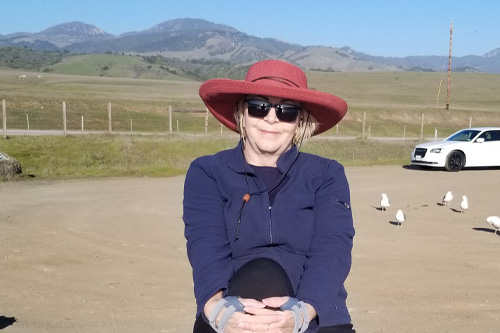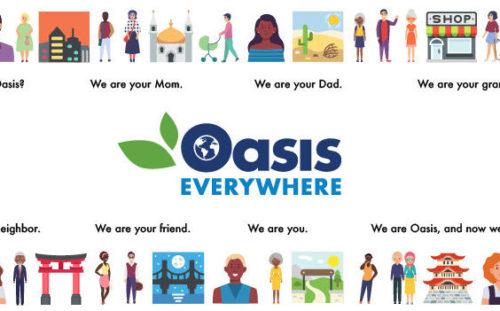 Family caregiving has long been the cornerstone of our healthcare system, but not everyone has that option.
Family caregiving has long been the cornerstone of our healthcare system, but not everyone has that option.
In 2016, nearly 15 percent of women ages 40-44 hadn’t given birth and were childless, up from 10 percent in 1976, according to the U.S. Census Bureau. A 2013 report from AARP projects that by 2040, about 21 percent of the older, disabled population will be childless. Not all older adults with grown children can necessarily rely on them for caregiving, either. Many report geographical distance or estranged relationships as barriers to this kind of support.
Older adults who do not have children or other family members to turn to for help as they age face additional challenges. If you’re in this situation, have you thought about how you will find help and support in the years ahead?
How I went from caregiver to planning my aging
After both of my parents died, I thought, “Wow, was that was a lot of work!” Watching my Mom and Dad grow older taught me three significant lessons: growing older is challenging and much more so if one has little to no help nearby; it takes a village to give proper care; and if you are on your own and do not create a plan, you’re at risk of relying on complete strangers.
After I stepped out of the family caregiver role, I committed to finding the healthiest and safest way to age without adult children or a spouse to look out for me. Over the years, I read books, researched housing, transportation, health and financial resources to ensure my own aging well plan. I also took steps to create a community of others with similar situations.
Creating a community through social media
In 2016, I launched the Elder Orphans Facebook Group in order to find others like me who are aging alone without nearby family and support. It started with three members, but quickly ballooned to 1,000. Soon I was receiving calls from publications wanting to know more about this hidden segment of the aging population. Today, we have 10,000 members. The group is restricted to individuals over 55 who live without the help of a spouse, partner or children. If you feel you’re aging alone, with little support, you belong.
With the help of this group’s members, no one feels alone and isolated. We are also very resourceful. I believe that everyone over 45 should think about the latter years and have strategies in place to remain healthy and strong, ensure that our savings outlast us and avoid isolation and loneliness.
A survey of members of the Elder Orphan Facebook Group conducted by an academic professor revealed other factors that people without family support should consider as we anticipate some of the situations that often arise during the aging process:
- Identify a caregiver who would help if you became ill or disabled.
- Find a trusted person to help you cope with life’s challenges like medical and financial decisions.
- Identify a trusted person to whom you can have access during a crisis.
- Be intentional about finding people to socialize with you to avoid loneliness.
- Mitigate your chances of developing chronic conditions by developing healthy habits.
When you make a plan to tackle these issues, then you’re less confused and uncertain about handling them in the coming years. Here are three strategies I use to help me and hopefully, they will get you moving in the right direction.
- First, identify and select one top concern you have. Determine what you’d like to change. In the beginning of my planning process, my primary concern was my health.
- Second, list the reasons for the needed change. Ensuring that I was taking steps to be in my best health possible was something I was very interested in pursuing. The reason for this stemmed from what I experienced giving care to Mom and Dad. I knew if I was unhealthy later on, dealing with multiple chronic illnesses, I would be in a world of hurt since I have no one to rely on for help like my parents had.
- Third, assess the factors of the issue or concern. Here’s where you’ll go deeper. If you want to avoid chronic illnesses, like I did, then some of the factors that can affect health conditions are tobacco use, harmful use of alcohol, blood pressure, physical inactivity, cholesterol, unhealthy diet and blood sugar – a few of the factors I addressed when planning for a better health.
Planning for aging without family support also requires some careful consideration about how you will expand to a larger support system. For many, that requires getting out of a comfort zone. What are you willing to do to increase that system of support? Are you willing to leave you house, join a Meetup group or meet new people? What are you willing to invest to make this happen? You see, no one will do it for you. It’s up to you to get going in the right direction. Above all, shift your mindset from problem solving to a possibility focus. That can be done by asking questions that open your thinking to possibilities. After you ask yourself why a challenge exists, the next stop is to consider interesting new ways to address it.
If you think these simple tips might help you get started in preparing for what’s ahead, I invite you to read my latest article, The 3 Key Strategies of Future Planning.
About the author
 Carol Marak, CarolMarak.com, earned a Fundamentals of Gerontology Certificate from the USC Davis School of Gerontology and advocates on behalf of older adults living alone without the support of a spouse, partner or adult children. In addition to launching and overseeing a Facebook group for older adults to address the challenges and complexities of aging alone, Carol is Editor of SeniorCare.com, and a frequent contributor to health care organizations, Huffington Post, Love to Know, BlogHer.com, AssistedLivingFacilities.org, HomeCareAgencies.com, SkilledNursingFacilities.org, About.com, and Healthline.
Carol Marak, CarolMarak.com, earned a Fundamentals of Gerontology Certificate from the USC Davis School of Gerontology and advocates on behalf of older adults living alone without the support of a spouse, partner or adult children. In addition to launching and overseeing a Facebook group for older adults to address the challenges and complexities of aging alone, Carol is Editor of SeniorCare.com, and a frequent contributor to health care organizations, Huffington Post, Love to Know, BlogHer.com, AssistedLivingFacilities.org, HomeCareAgencies.com, SkilledNursingFacilities.org, About.com, and Healthline.






Leave A Comment
You must be logged in to post a comment.